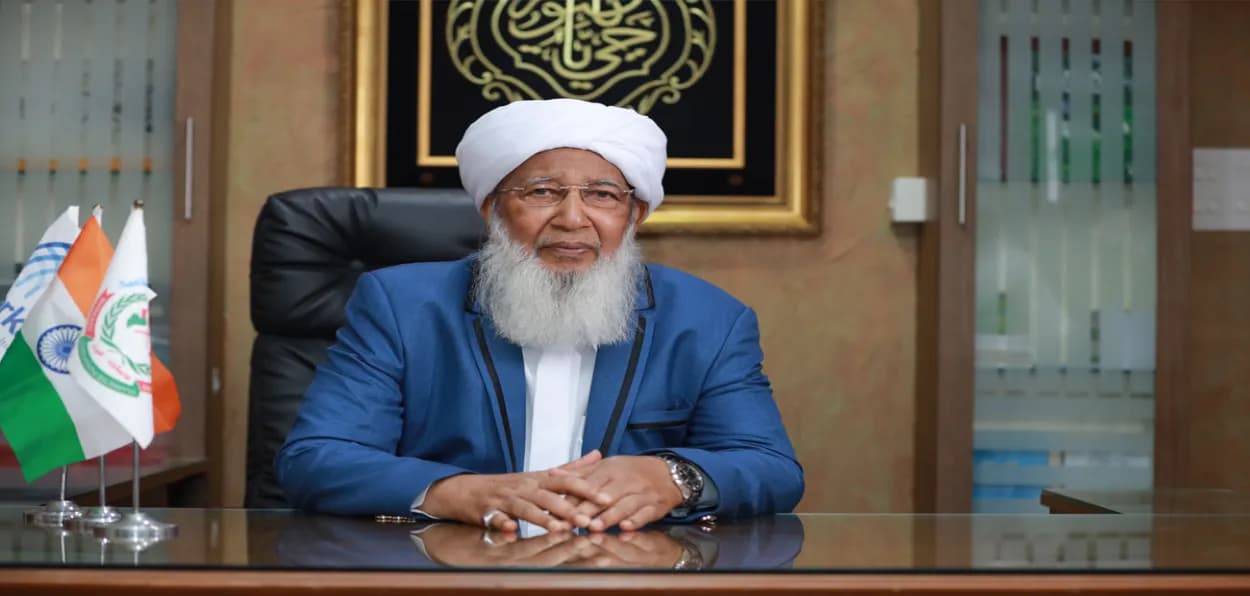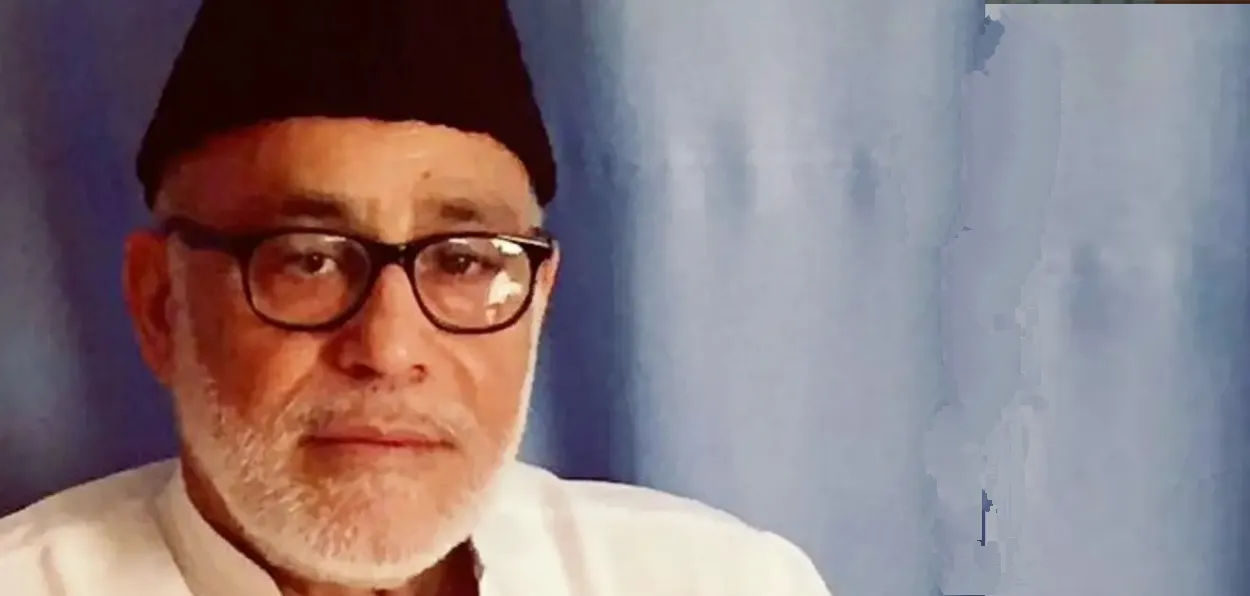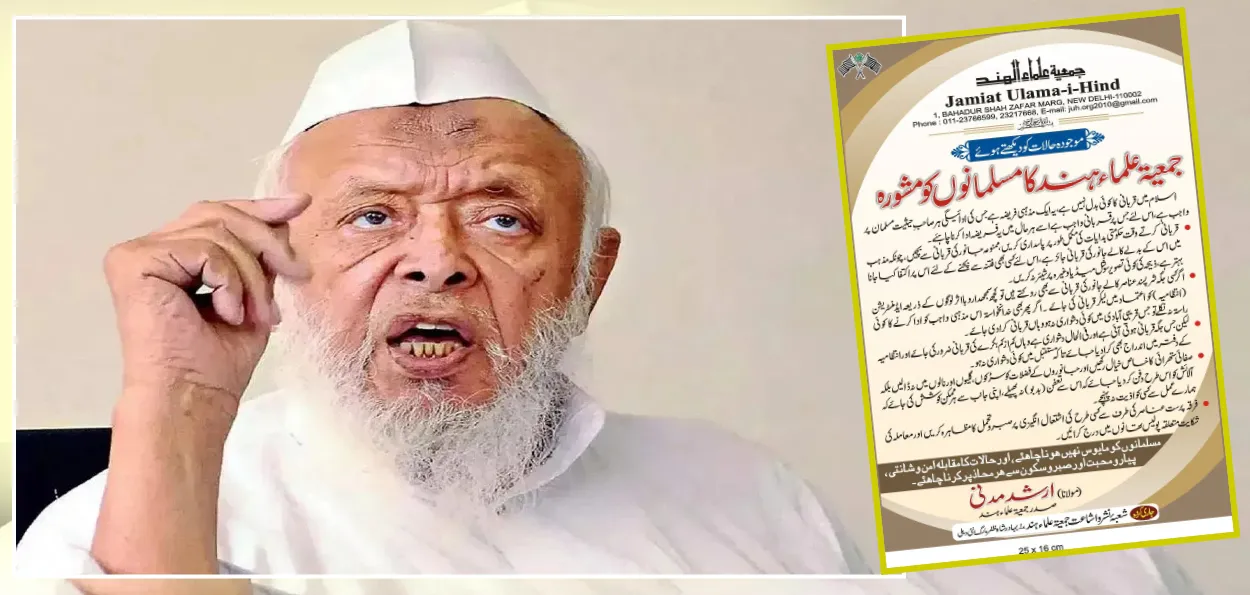.webp)
New Delhi
As Muslims across India prepare to celebrate Eid al-Adha, also known as the Festival of Sacrifice, leading religious scholars and intellectuals have issued a joint appeal urging the community to observe the ritual of Qurbani (sacrifice) with caution, simplicity, and respect for the sentiments of fellow citizens.
In their collective messages, the clerics emphasised that while sacrifice is a deeply significant religious duty, it must be carried out in a manner that upholds the dignity of the ritual and does not cause inconvenience or distress to others. They advised against public displays of animals, loud celebrations, or sharing graphic content on social media. Cleanliness, they said, must be prioritised, and government guidelines should be strictly followed.
 Grand Mufti of India and head of Jamia Markaz, Sheikh Abubakr Ahmed
Grand Mufti of India and head of Jamia Markaz, Sheikh Abubakr Ahmed
Grand Mufti of India and head of Jamia Markaz, Sheikh Abubakr Ahmed, described Qurbani as an irreplaceable act of devotion, representing humility and submission to God. In his Eid message, he called on Indian Muslims to ensure their actions do not hurt the feelings of their fellow citizens.
“Eid al-Adha teaches sacrifice and service to humanity,” he said. “Let this blessed occasion be used to renew our commitment to the prosperity and development of the nation.” He further stressed the importance of caring for the poor, sick, and differently-abled during the festive season and called for efforts to keep the celebration free of violence and vice.
He warned against sacrificing prohibited animals and emphasized proper disposal of animal waste. “Do not post images of Qurbani on social media,” he urged. “Let us promote peace and goodwill, not discord.”
 Maulana Zaheer Abbas Rizvi
Maulana Zaheer Abbas Rizvi
Renowned scholar Maulana Zaheer Abbas Rizvi reiterated that Qurbani is a spiritual act done for God alone, and should not become a display of wealth or status. “This is a day of animal sacrifice, but it symbolizes our inner spirit of selflessness,” he said. “Those who love Allah should sacrifice quietly and respectfully, without seeking attention or praise.”
Maulana Rizvi strongly opposed the public slaughter of animals and warned that it could damage interfaith harmony. He also appealed to Muslims to avoid sharing photos and videos of their sacrifices. “Social media should be a platform to spread love, not hatred,” he said.
Emphasizing Islam’s teachings on cleanliness, he called for proper burial of animal remains and urged people not to dump hides or bones in public spaces. “Cleanliness is half of faith. Let’s make Eid al-Adha a peaceful and exemplary occasion by following our religious principles.”
 Message from Arshad Madani
Message from Arshad Madani
President of Jamiat Ulama-i-Hind, Maulana Arshad Madani, reminded the Muslim community that Qurbani is a mandatory religious obligation for those who can afford it. However, he stressed that in the current environment, caution is necessary. He advised against sharing images of sacrificial animals, especially on social media.
Maulana Madani also warned against sacrificing banned animals and noted that since black-colored animals are religiously permissible, people should remain confident in their choices. “If local miscreants object, engage responsible community leaders and seek help from the administration,” he said. “If no safe solution is found, perform the sacrifice in a nearby area.”
He stressed the importance of documenting the sacrifice in sensitive areas to avoid future issues. Maulana Madani also called for a heightened focus on sanitation. “Animal remains, including hides and bones, must not be thrown on streets or drains. They should be buried in a way that prevents foul odors,” he said. “Ensure that our religious acts do not harm others in any way.”
Deputy Shahi Imam of Delhi’s historic Jama Masjid, Maulana Syed Shaban Bukhari, issued a special appeal urging Muslims to maintain cleanliness and avoid sacrificing animals in open spaces, streets, or alleys. He stressed that Qurbani should be performed within private premises and not in public view.
He also advised against filming the sacrificial process or posting it online. “Islam is a religion of peace,” he said. “Our conduct must ensure that no one’s sentiments are hurt. Like Holi or Diwali, Eid al-Adha should be celebrated with dignity and devotion.”
He emphasized that Islam teaches respect for all religions and forbids any action that offends others. “The ritual of sacrifice must be carried out in a way that upholds the law and strengthens communal harmony—values that are the pride of Islam,” he added.
Across the board, scholars called upon Indian Muslims to reflect the true spirit of Eid al-Adha through humility, empathy, and discipline. The emphasis was unanimous: sacrifice is a solemn religious duty, not a spectacle. The community must ensure that the festival promotes peace, preserves harmony, and strengthens national unity.
READ MORE: Animal sacrifice is not mandatory for Muslims on Eid ul-Adha
With growing sensitivity around religious events, the appeal serves as a timely reminder that spirituality and social responsibility must go hand in hand—especially during occasions as significant as Eid al-Adha.
